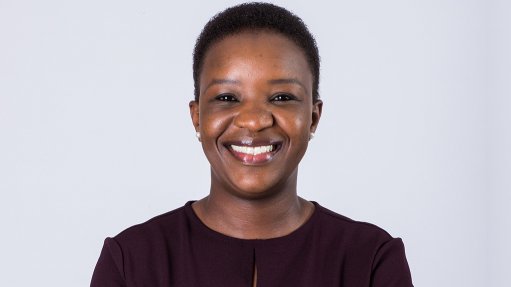More economic optimism, but CEOs concerned half of businesses may be unviable in a decade
While the proportion of CEOs who are optimistic about global growth prospects increased from 18% to 38% in assurance, advisory and tax services company PwC's twenty-seventh 'Annual Global CEO Survey' as concerns about inflation and macroeconomic volatility fall, 45% of them do not believe their businesses will be viable in a decade without reinvention, up from 39% in 2023.
CEOs' expectations of economic decline have also tumbled to 45% from a record high of 73% in the 2023 survey, as perceived exposure to inflation fell by 16 percentage points to 24%, and macroeconomic volatility fell by 7 percentage points to 24%.
Further, despite ongoing conflicts, the proportion of CEOs who felt their company was moderately or highly exposed to geopolitical conflict risk fell 7 percentage points to 18%, the report said.
Additionally, business leaders across Africa were sharing similar sentiments to their global counterparts, as well as facing similar challenges, said PwC Africa CEO Dion Shango.
PwC Africa will take a closer look at the results of this year’s Global CEO Survey with a specific focus on the results from CEOs in sub-Saharan Africa, and their findings will be published in a series of territory perspective articles.
“This year, our report was compiled under the theme of Thriving in an age of continuous reinvention, which is apt for business leaders globally and in Africa. We are all facing the opportunities and pressures of technology, inflation, and climate change among a multitude of other factors.
“With people in Africa seeking change and more opportunity, reinvention will be required by all sectors in an effort to create more sustainable, thriving societies,” he said.
BUSINESSES AND AI
Meanwhile, CEOs are more likely to plan to increase than decrease their headcount in the next 12 months, with 39% reporting that they expect to increase their headcount by 5% or more. Employers in every region are more likely to increase than decrease headcount, with the Middle East the most bullish on hiring (65%).
“While the trajectory is positive, confidence is fragile as megatrends, including the climate transition and technological disruption, as exemplified by generative AI, converge.
“Reflecting uncertainty about how they will manage megatrends, CEOs are somewhat less confident than last year in their own company’s prospects for revenue growth over the next 12 months, which is down to 37% from 42%,” PwC said.
“As business leaders are becoming less concerned about macroeconomic challenges, they are becoming more focused on disruptive forces within their industries. Despite rising optimism about the global economy, they are less optimistic than last year about their own revenue prospects, and more acutely aware of the need for fundamental reinvention of their business,” said PwC Global chairperson Bob Moritz.
“Whether it is accelerating the roll-out of generative AI or building their business to address the challenges and opportunities of the climate transition, this is a year of transformation,” he emphasised.
CEOs overwhelmingly see generative AI as a catalyst for reinvention that will power efficiency, innovation and transformational change. Nearly three-quarters, or 70%, believe it will significantly change the way their company creates, delivers and captures value in the next three years.
Further, the CEOs are also optimistic about the short-term impact, with 58% expecting AI to improve the quality of their products or services over the next 12 months, and 48% say it will enhance their ability to build trust with stakeholders.
They also expect better outcomes for their business, with 41% expecting AI to positively impact revenue and 46% expecting it to positively impact profitability.
The technology, media and communications sector is most positive about the impact on profit at 54%, while energy, utilities and resources are least optimistic at 36% of CEOs in these sectors.
“However, while CEOs are increasingly looking to the transformative benefits of generative AI, the great majority say it will require workforce upskilling, at 69%. They have also expressed concern about an associated rise in cybersecurity risk, at 64%, misinformation, at 52%, legal liabilities and reputation risks, at 46%, and bias towards specific groups of customers or employees, at 34%, in their companies,” the report added.
Notably, smaller companies are at greater risk, and 56% of CEOs leading businesses generating less than $100-million in yearly revenue believe their businesses will only be viable for 10 years or less if it continues running on its current path, the survey shows.
This falls to 27% for those making $25-billion or more in revenue a year, the report showed.
Almost all, or 97%, CEOs note they have taken steps to change how they create, deliver and capture value in the past five years, and 76% have taken at least one action that had a large or very large impact on their company’s business model.
However, in terms of challenges, 64% of CEOs cite the regulatory environment as inhibiting their ability to reinvent their business model to at least a moderate extent, 55% highlight competing operational concerns, and 52% point to a lack of skills in their company’s workforce.
"A further obstacle is inefficiency. CEOs perceive significant inefficiencies across a range of their companies’ routine activities, which is everything from decision-making meetings to emails, viewing roughly 40% of the time spent on these tasks as inefficient."
A conservative PwC estimate of the cost of that inefficiency is comparable to a self-imposed $10-trillion tax on productivity.
“This year’s data suggests a high degree of CEO uncertainty ahead, but CEOs are taking action. They are transforming their business models, investing in technology and their people, and managing the risks and opportunities presented by the climate transition.
“If businesses are to thrive over the short and long-term, build trust and deliver sustained and long-term value, they must accelerate the pace of reinvention,” Moritz emphasised.
CLIMATE ACTIONS
Further, many CEOs are seeing the climate transition as an industry disruptor containing distinct opportunities in addition to risks.
“Nearly one-third of CEOs expect climate change to shift the way they create, deliver and capture value over the next three years, up from the less than one-quarter who said this of the past five years.”
The survey notes that business leaders are making progress in turning their commitments into action. Three-quarters, or 76%, have either begun or completed steps to improve energy efficiency, while 58% report having made similar strides when it comes to innovating new, climate-friendly products, services or technologies.
However, only 45% of CEOs report having made progress on, or completed, incorporating climate risk into financial planning, with 31% also noting no plans to do so. Action on adaptation to physical climate risks was also lagging at 47%, with 29% noting no plans to act, the PwC report said.
“The survey suggests significant support for decarbonisation, with only 26% saying that a lack of board or management buy-in is a moderate or large barrier to decarbonisation. Instead, 54% of CEOs cite regulatory complexity and 51% lower economic returns for climate-friendly investments as the biggest barriers to be overcome.
“CEOs are beginning to take on the economic barrier, with four in ten reporting that they have accepted lower hurdle rates for climate-friendly investments than for other investments, in the majority of cases between one and four percentage points lower,” the report noted.
Comments
Press Office
Announcements
What's On
Subscribe to improve your user experience...
Option 1 (equivalent of R125 a month):
Receive a weekly copy of Creamer Media's Engineering News & Mining Weekly magazine
(print copy for those in South Africa and e-magazine for those outside of South Africa)
Receive daily email newsletters
Access to full search results
Access archive of magazine back copies
Access to Projects in Progress
Access to ONE Research Report of your choice in PDF format
Option 2 (equivalent of R375 a month):
All benefits from Option 1
PLUS
Access to Creamer Media's Research Channel Africa for ALL Research Reports, in PDF format, on various industrial and mining sectors
including Electricity; Water; Energy Transition; Hydrogen; Roads, Rail and Ports; Coal; Gold; Platinum; Battery Metals; etc.
Already a subscriber?
Forgotten your password?
Receive weekly copy of Creamer Media's Engineering News & Mining Weekly magazine (print copy for those in South Africa and e-magazine for those outside of South Africa)
➕
Recieve daily email newsletters
➕
Access to full search results
➕
Access archive of magazine back copies
➕
Access to Projects in Progress
➕
Access to ONE Research Report of your choice in PDF format
RESEARCH CHANNEL AFRICA
R4500 (equivalent of R375 a month)
SUBSCRIBEAll benefits from Option 1
➕
Access to Creamer Media's Research Channel Africa for ALL Research Reports on various industrial and mining sectors, in PDF format, including on:
Electricity
➕
Water
➕
Energy Transition
➕
Hydrogen
➕
Roads, Rail and Ports
➕
Coal
➕
Gold
➕
Platinum
➕
Battery Metals
➕
etc.
Receive all benefits from Option 1 or Option 2 delivered to numerous people at your company
➕
Multiple User names and Passwords for simultaneous log-ins
➕
Intranet integration access to all in your organisation


















